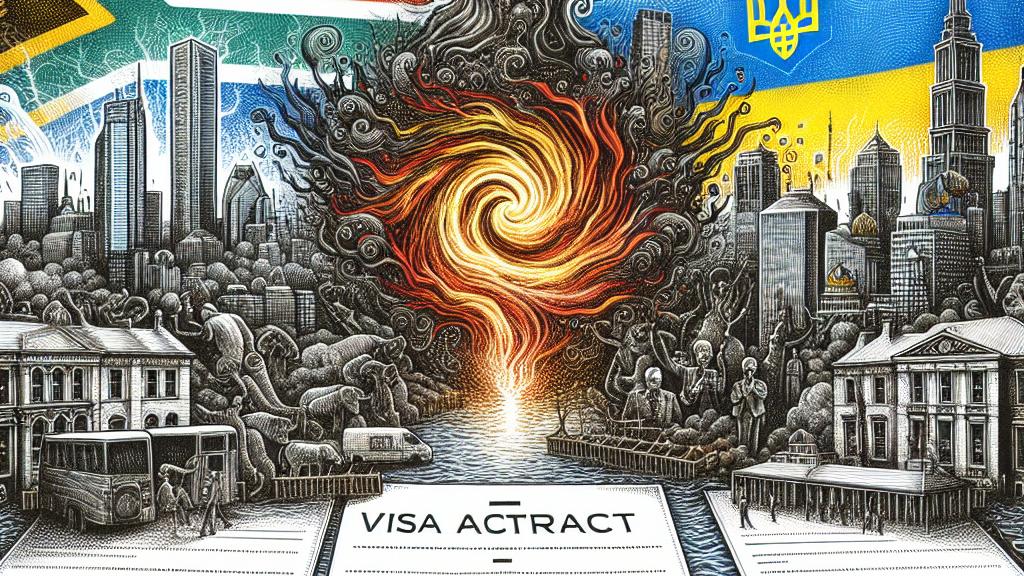Controversial Visa Deal between South Africa and Ukraine Ignites Political Tensions
Overview
- A newly established visa agreement allowing Ukrainian diplomats entry without visas has sparked significant political outrage in South Africa.
- This controversy has revealed profound divisions within the ruling coalition over foreign policy and historical allegiances.
- The ramifications of this deal may irrevocably alter South Africa's longstanding partnership with Russia.

Examining the Visa Agreement
In South Africa, the announcement of a visa-free entry agreement for Ukrainian diplomats has ignited an intense political firestorm. Home Affairs Minister Leon Schreiber framed the deal as a necessary step in cementing ties with Ukraine, citing Ukraine’s historical role in supporting South Africa's anti-apartheid movement. However, this announcement quickly drew criticism from various quarters. President Cyril Ramaphosa’s office publicly chastised Schreiber, asserting that he had acted without proper presidential endorsement. This swift backlash raises important questions about the future of South Africa's diplomatic relations with Russia, given that many view this agreement as a potential betrayal of a crucial historical ally amidst the ongoing conflict in Ukraine.
Political Divisions Uncovered
The fallout from the visa deal has unveiled stark divisions within the South African government. The coalition formed by the African National Congress (ANC) and the Democratic Alliance (DA) is showing signs of strain, as they struggle to reconcile differing stances on foreign relations. Ramaphosa's condemnation of Schreiber reflects a broader internal struggle about the government's direction. The DA, which has vocally opposed Russia's actions, finds itself at odds with the ANC’s inclination to maintain a more favorable stance towards Moscow. This rising tension not only highlights the fragile nature of political alliances but also underscores a greater dilemma: how should South Africa navigate its role on the global stage, especially in light of its historical commitments?
Implications for Future Diplomatic Relations
The implications of this visa agreement are far-reaching, posing significant questions for South Africa’s future diplomatic posture. Critics, including members of the Economic Freedom Fighters (EFF) and several opposition factions, argue that the agreement marks a betrayal of South Africa's traditional solidarity with Russia—a partnership forged during the struggle against apartheid. As South Africa seeks to assert its position in global forums like BRICS and the United Nations, the government's management of this visa deal will likely influence its broader diplomatic relationships. Ultimately, how the ruling coalition moves forward will not only test internal governance but could also redefine South Africa’s geopolitical identity in a rapidly evolving international landscape.

Loading...